A lot hangs on a story’s first line. Pragmatically speaking, it’s the first place (well, after the title) where you might lose a reader, and so many writers approach first lines with self-consciousness or a kind of literary showmanship.
On a practical level, there’s a number of things that first lines can communicate: point of view, character, setting, theme, atmosphere, or circumstance. It cannot do all of these things, but in glancing toward some of them, it becomes a moment of orientation: the reader opening their eyes into the story.
I tend to prefer unshowy first lines, openings that quietly go about the business of setting up a world without trying too hard to ‘hook’ me in. “This is what’s happening here, if you want to read on,” they calmly beckon. Usually, I answer their call.
Here’s why I think these 10 first lines work.
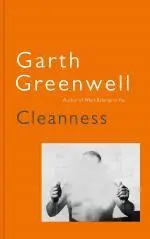 1. "Cleanness" by Garth Greenwell
1. "Cleanness" by Garth Greenwell
We had agreed to meet at the fountain in front of the McDonald’s in Slaveykov Square.
This simple sentence gets a lot done, discreetly. First-person narration is quickly established, followed by a clear sense of setting. We’re in Sofia, Bulgaria, in a specific square that the unfamiliar reader has to do little to picture: there’s a McDonald’s, and a fountain in front of it. But Greenwell doesn’t just say “We met in Slaveykov Square, where there’s a fountain in front of the McDonald’s.” Instead, “Agreed to meet” hints at expectation, anticipation, a directional movement towards a meeting. We’re already somewhere.
Get Cleanness on Bookshop or Amazon
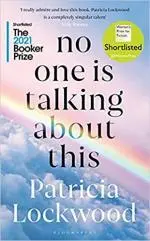 2. "No One Is Talking About This" by Patricia Lockwood
2. "No One Is Talking About This" by Patricia Lockwood
She opened the portal, and the mind met her more than halfway.
I like this first line because I imagine the narrator speaking it with a knowing half-smile, aware they’re being cryptic, but accepting this unusual sentence as true. Lockwood’s portal is Twitter unnamed, a fact readers probably know from the back cover and book description — but calling it the “portal” creates an interesting defamiliarizing effect. The “mind” is slightly more obscure — is Twitter or the internet presented as semi-sentient? Or are the other people on Twitter the collective “mind”?
It’s a hook, but it doesn’t feel sales-y. Just a sentence being its humbly obscure self.
Get No One Is Talking About This on Bookshop or Amazon
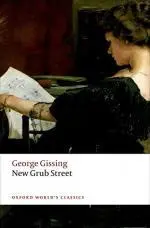 3. "New Grub Street" by George Gissing
3. "New Grub Street" by George Gissing
As the Milvains sat down to breakfast the clock of Wattleborough parish church struck eight; it was two miles away, but the strokes were borne very distinctly on the west wind this morning.
It seems a shame to separate this first sentence from the rest of its paragraph. The next sentence has Jasper Milvain gleefully tell his mother and sisters that a man is being hanged in London this morning, as he cracks an egg with presumed appetite. In terms of pace, this first sentence takes its time, beginning with an ordinary domestic scene — but combined with the sentence that follows, it sets up a powerful dynamic. On the one hand, a distant scene of suffering — on the other, cheerful breakfast.
Get New Grub Street on Bookshop or Amazon
 4. ""Eveline"" by James Joyce
4. ""Eveline"" by James Joyce
She sat at the window watching the evening invade the avenue.
The first line of "Eveline" is a great example of an opening establishing a central theme. As the reader finds out, this story’s main character is paralyzed by inertia, passively refraining from making any decisions. The first line encapsulates all this in compressed form: Eveline watches the world from afar, perceiving its ways as inevitable (the avenue being “invaded”). The evening is a more active character than Eveline in this first line — invading being more forceful than watching. In snow globe form, we have Eveline’s predicament concisely summarized.
Get Dubliners on Bookshop or Amazon
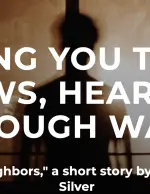 5. ""My Neighbors"" by Douglas Silver
5. ""My Neighbors"" by Douglas Silver
I listen to them at night, the neighbors making love.
I really admire the brevity of Douglas Silver’s first line in this short story — in ten words, we have a first-person perspective set up, in parallel to two observed characters who don’t know they’re part of his story. The sentence being so short, readers will notice the active verb (“listen,” instead of “hear”), and picture the narrator sitting down for a conscious listening session. Naturally, you wonder what his deal is, and the story draws you in, without needing to rely on drama.
Read "My Neighbors" at Electric Literature
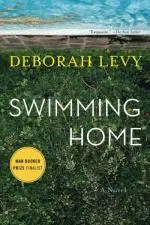 6. "Swimming Home" by Deborah Levy
6. "Swimming Home" by Deborah Levy
When Kitty Finch took her hand off the steering wheel and told him she loved him, he no longer knew if she was threatening him or having a conversation.
I recall not being sure whether I was supposed to laugh or be alarmed when I read this first sentence. Compared to the rest of this selection, this one might feel a little more ‘showy’ — conscious of its own attempt to impress you, but it works. If, like me, you’re stressed out by fictional scenes involving distracted driving, you’ll feel the urgency of the moment we’re suddenly thrown in. Thrills aside, the male character’s thought reveals a darker sort of terror: not knowing the person next to you at all, their next move being totally unpredictable. That, and the instant sense that you’re in the hands of a confident writer, and you’re already on the next paragraph.
Get Swimming Home on Bookshop or Amazon
 7. ""A Temporary Matter"" by Jhumpa Lahiri
7. ""A Temporary Matter"" by Jhumpa Lahiri
The notice informed them that it was a temporary matter: for five days their electricity would be cut off for one hour, beginning at eight P.M.
This matter-of-fact first sentence is entirely devoid of drama or urgency — a domestic inconvenience is announced ahead of time, with a precise time frame specified. It’s described as temporary, but it clearly signposts the break from normality that will act as this story’s inciting incident.
Get Interpreter of Maladies on Bookshop or Amazon
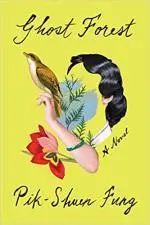 8. "Ghost Forest" by Pik-Shuen Fung
8. "Ghost Forest" by Pik-Shuen Fung
Twenty-one days after my dad died, a bird perched on the railing of my balcony.
Pik-Shuen Fung’s book opens with quiet heartbreak. The days, numbered, show the slow passage of time in a period of grief, the sense of emerging from a deep experience to suddenly notice an external detail. It’s giving us some important facts — this is a first person narrative, the character’s father has died, and the story begins three weeks after his death. More importantly, though, Ghost Forest immediately gives the reader an idea of the narrator’s emotional state, and the wider atmosphere of the book: slow, observant, and wounded.
Get Ghost Forest on Bookshop or Amazon
 9. "Milk Teeth" by Jessica Andrews
9. "Milk Teeth" by Jessica Andrews
I kiss you for the first time on my birthday.
This simple line doesn’t try to impress you. It quickly sets up the historical-present, first-person narrative as well as the story’s romantic theme, and trusts its own brevity enough to leave specificity to the sentence that follows: “I am sweating in gold sequins in a basement in Peckham.” The glamor of gold sequins contrasted with seating in a rather unglamorous Peckham basement makes for a half funny, half devastating contrast of expectations and reality — and tells the reader they’re in the company of a party-goer searching for romance in London.
Get Milk Teeth on Amazon
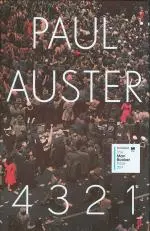 10. "4 3 2 1" by Paul Auster
10. "4 3 2 1" by Paul Auster
According to family legend, Ferguson’s grandfather departed on foot from his native city of Minsk with one hundred rubles sewn into the lining of his jacket, traveled west to Hamburg through Warsaw and Berlin, and then booked passage on a ship called The Empress of China, which crossed the Atlantic in rough winter storms and sailed into New York Harbor on the first day of the twentieth century.
Auster’s is by far the longest first sentence in this selection. Its length is probably inadvisable, but it’s a pretty good representation of the sprawling historical fiction tale that follows. Epic in scope, 4 3 2 1 hinges on a key turning point in the protagonist’s life, tracing four alternative futures that could stem from that moment. It’s only fitting that the novel’s first sentence would convey the scale of this project: the series of actions described in this sentence, ending with a new beginning on the first day of the 20th century, show a deep curiosity about the interconnectedness of events, and the many decisions hidden inside the folds of the past.
Get 4 3 2 1 on Bookshop or Amazon
Clearly, there are many ways to effectively open a story. This list is by no means definitive — but I hope it's clear why each of them works.

About the author
Kleopatra Olympiou is a writer from Cyprus. She writes for the Reedsy blog, and holds an MA in Creative Writing from Durham University.







